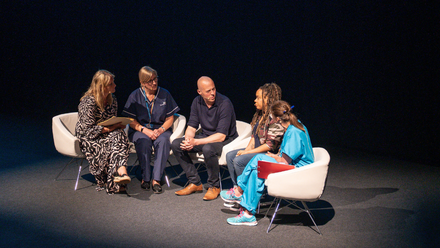Workforce diversity in the NHS
Workforce diversity in the NHS is paramount to the future of intensive care services and the UK health system
Our NHS is a world-renowned institution that since its inception, has benefited from an overseas workforce. Today 13.8% of that workforce report a non-British identity. This includes 18% of nurses and health visitors, 29% of hospital and community healthcare service doctors and 10% of clinical support staff (1) These individuals have both supported and enriched our health service. They are integral to its function.
Today, the NHS is experiencing a significant staffing crisis and under the most pressure it has ever been. In February 2021, there were 38,000 nursing vacancies and The King’s fund have estimated that to maintain nursing services alone, the NHS needs to prepare to recruit 5000 nurses per year from overseas (2) These shortages are contextualised further by the fact that 28% of nurses and health visitors will leave the NHS within their first three years of service (2)
Covid-19 has pushed UK intensive care to its very limit. A culture of collaboration and non-partisan thinking enabled us to stretch services well beyond what we thought possible. And while this has undoubtedly brought sharply into focus the urgency to look for solutions to the shortage of trained intensive care staff, it is has also served to re-iterate to us the value of every single individual who makes up the intensive care multi-professional team.
Intensive Care society, Honorary Secretary, Dr Shondipon Laha, says "The last year has highlighted the need for diversity within the NHS. A multitude of cultures that have all supported the same mission for many decades. I’m proud of my colleagues both in the NHS and the Society who recognise people not just for what they do but for who they are."
The 2020 NHS staff survey reported that just over one in eight staff related experiencing discrimination at work (3)
The Society’s chair for Equality Diversity, and Inclusion working group, Dr Aoife Abbey, says “The NHS now needs leaders that value all staff, who are inclusive, who unequivocally do not tolerate discrimination and importantly, who are not afraid to look at their own role in creating culture, admit mistakes and seek to create positive change at every opportunity. This is the culture required to protect the high-quality care we deliver to our patients.”
The Intensive Care Society would like to make clear that in the wake of the worst national health crisis of our time, now is not the time to sow division or cultivate ‘othering’ of any of our workforce. This is an important message, not just for the politicians that lead or seek to lead us, but to the media and all those with the power to set the tone for culture that governs how we treat those around us. It is an especially poignant message also in the wake of last week’s news that, for the first time, a claim of discrimination against a non-British doctor on the basis of race, was upheld against the General Medical Council. (4)
Intensive Care President, Dr Stephen Webb, says “Intensive Care and the wider NHS is extremely lucky to have the support of our colleagues from around the world and from all walks of life who are fundamental to the delivery of the care across the UK. It is imperative that we continue to do all we can to support our exceptional workforce and pave the way to a better future for the next generation of healthcare by fortifying a diverse and inclusive culture.”
Looking forward, we call for pragmatic, realistic and properly funded solutions to staffing shortages in the NHS.
We remain immensely grateful for all our colleagues, whatever nationality they call their own.
- NHS staff from overseas report, 2020 https://commonslibrary.parliament.uk/research-briefings/cbp-7783/
- https://www.kingsfund.org.uk/projects/positions/nhs-workforce
- NHS Staff Survey 2020 National Results Briefing https://www.nhsstaffsurveys.com/Caches/Files/ST20%20national%20briefing%20doc.pdf
- https://www.matrixlaw.co.uk/wp-content/uploads/2021/06/Final-Press-Release-17.06.21_.pdf



